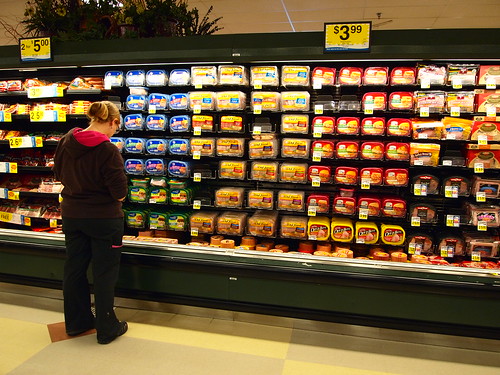Solemnity of St Ignatius of Loyola
Priest & Founder of the Society of Jesus
Readings: Jeremiah 20:7-9; Psalm 34; 1 Corinthians 10:31-11:1; Luke 14:25-33
Picture: cc Bryce Bradford
My dear friends, if I were to tell you that you are very important to me, how would you know whether or not I’m telling you the truth? I’m not sure, but I believe Covid-19 has actually helped some of us discover the answer to this question. For example, when a young couple is forced by safe-distancing regulations to choose no more than twenty people to invite to their wedding, their friends and relatives discover rather quickly, don’t they, just how important they are. Isn’t this a more reliable indicator of the things we consider more important, the people we hold more dear? Not so much what we say, but how we choose, especially when we are forced by circumstances to do so.
Perhaps this is what Jesus is getting at in the gospel, when he says that, to be a true follower of his, one must go so far as to hate not just the closest members of one’s family, but even life itself. The point is not that I must detest the very people I’m supposed to love. After all, the scriptures tell us that God is love (1 Jn 4:8). But rather, in the event that I have to choose between the Lord and anyone or anything else, my choice must be the Lord. The Lord must be the single most important reality in my life. More important than life itself.
Isn’t this the experience of Jeremiah, in the first reading? Called by God to preach an unpopular message to the people, the prophet remains faithful to his mission, even though it results in him being laughed at and persecuted and thrown into prison. By choosing in this way – by choosing God over his own popularity and wellbeing – Jeremiah gives us a reliable indicator that he lives his life just as the second reading says we should. He does everything for the glory of God. Or, in other words, he truly worships God alone.
And it’s no surprise that these readings are chosen for this feast. For it was St Ignatius’ particular gift, not just to live in this way, but also to help others do the same. To choose God above all else. Truly to worship God alone.
I’m reminded of these lines by novelist, David Foster Wallace: There is no such thing as not worshipping. Everybody worships. The only choice we get is what to worship…. If you worship money and things… then you will never have enough, never feel you have enough…. Worship your body and beauty and sexual allure and you will always feel ugly. And when time and age start showing, you will die a million deaths before they finally plant you…. Worship power, you will end up feeling weak and afraid, and you will need ever more power over others to numb you to your own fear. Worship your intellect, being seen as smart, you will end up feeling stupid, a fraud, always on the verge of being found out…
Sisters and brothers, if our choices do indeed indicate what’s truly important to us, then what or who is most important to you? What or whom do you worship, today?


